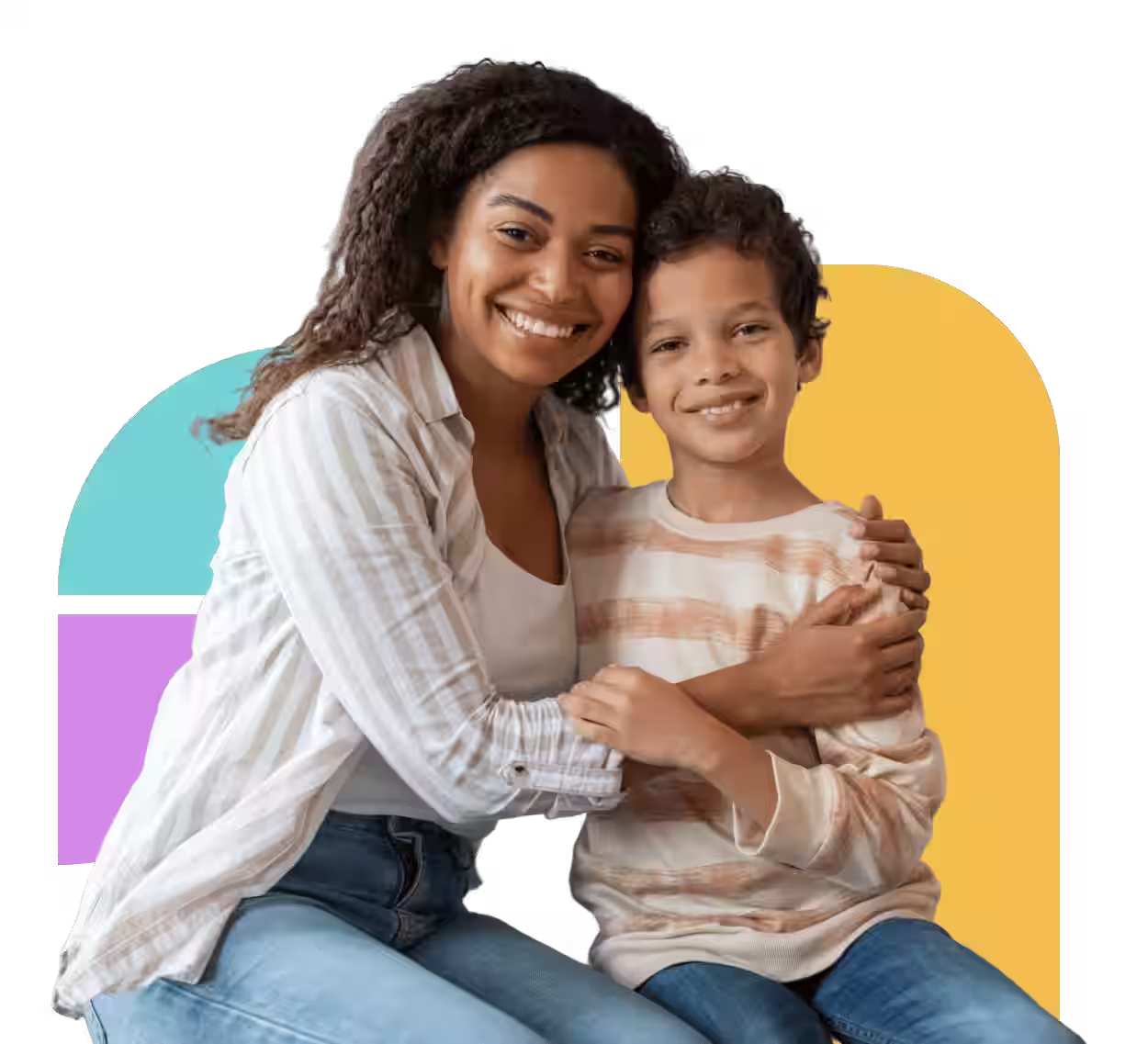Behaviour Management Consultation
Behaviour issues can make it hard for a child to join in with family life, day-to-day routines, school expectations, and activities outside the home. A behaviour management consultation gives families the structure, direction, and support they need to see real change. It supports challenging behaviour support, improves the child’s wellbeing, and strengthens learning outcomes. These behaviour management services provide practical behaviour management strategies, clear explanations, and tailored plans that help children learn safer behaviour patterns, stronger emotional regulation skills, and more consistent routines.
A behaviour support consultation is an in-depth, structured process guided by a professional behaviour consultant or behaviour support practitioner.
They apply behavioural science and elements of applied behaviour analysis (ABA) to identify the purpose behind your child’s behaviour and develop a personalised behaviour support plan as part of a complete behaviour intervention service.

What Is a Behaviour Management Consultation?
A behaviour management consultation is a structured, evidence-informed way to examine behaviour challenges and create plans that help a child develop safer, calmer, and more functional ways of coping. These sessions focus on behaviour management for children and offer families tools they can use immediately.
The process supports:
- identifying behaviour triggers
- understanding why the child’s behaviour happens
- teaching simple, functional replacement skills
- adjusting environments or routines to reduce triggers
- building proactive behaviour strategies
- guiding parents to implement consistent routines
- empowering families to manage behaviour with confidence
Because this service is data-driven, your child’s plan is built around their strengths, needs, and everyday routines. This ensures the strategies work effectively at home, at school, and in the community.
For families seeking a behaviour management consultation for children, this approach offers a personalised, flexible, and highly effective framework.


Our goal is simple: to build your child’s practical toileting skills with sessions that are intentional, measurable, and aligned with your family’s goals.
Why Children Show Behaviours of Concern
A behaviour management consultation helps families understand the “why” behind behaviours. Parents often seek children’s behaviour support when they feel overwhelmed, unsure how to respond, or worried about patterns that may pose a risk of harm.
Common reasons families seek support include:
- frequent emotional outbursts
- trouble following directions
- difficulty coping with changes
- disruptive behaviour
- unsafe behaviour or risk-taking
- sensory overload
- repeated actions that impact routines
- difficulty participating in school or groups
These behaviours are not signs of poor parenting — they are communication. Through your consultation, the practitioner identifies whether the behaviour helps the child get attention, avoid a task, reduce discomfort, manage sensory input, or access something important.
Once the function is clear, behaviour management strategies for families become more effective and predictable.

Benefits of Behaviour Management Consultations
.svg)
Practical strategies for real life
Designed for home, school, and community.
.svg)
Reduction in behaviours of concern
Consistent strategies improve safer behaviour patterns.
.png?width=82&height=82&name=Shape%2047%20(2).png)
Better family routines
Mornings, mealtimes, bedtime, and outings become easier.

Improved communication & emotional regulation skills
Children learn safer, clearer ways to express needs.
.svg)
More confidence for parents & carers
Families feel empowered and capable.
.png?width=82&height=82&name=Shape%2047%20(1).png)
Long-term independence
Skills grow over time, supported by a strong positive behaviour support PBS framework.
What Behaviours Can Be Addressed?
This consultation supports children experiencing:
- emotional outbursts
- transition difficulties
- disruptive behaviour
- unsafe behaviours (running, climbing, throwing items)
- behaviours caused by overwhelm
- limited participation in groups
- routines affecting sleep, meals, or hygiene
- sensory-seeking or sensory-avoidant behaviour
This includes both challenging behaviour support and PBS-aligned strategies within a positive behaviour support (PBS) framework.
.png?width=1125&height=777&name=DAAR%20LOGO%20(22).png)
The Behaviour Management Consultation Process
Initial Parent Discussion
Your behaviour consultant begins with a detailed discussion about your child’s behaviour history, strengths, routines, challenges, and prior strategies. This helps us understand how the child’s behaviour fits into daily life and establishes the foundation for your personalised behaviour plan consultation.
Behaviour Assessment
A structured behaviour assessment takes place in your home, school, childcare, or community setting. Your practitioner observes:
- patterns
- setting events
- environment pressures
- triggers
- communication needs
- sensory influences
- skill gaps
This step is essential for families seeking a behaviour support consultation NDIS, as it provides the documentation needed to guide future supports.
Functional Behaviour Analysis (FBA)
A Functional Behaviour Analysis helps identify:
- what occurs before the behaviour
- what the child does
- what occurs after the behaviour
This reveals whether behaviour serves a purpose (attention, escape, comfort, access, sensory input). Understanding this is the core of how behaviour management consultations work and is essential for effectively addressing challenging behaviours.
Individualised Behaviour Strategies
Using the data collected, your practitioner develops a tailored strategy plan that includes:
- proactive behaviour strategies
- adjustments to reduce triggers
- teaching emotional regulation skills
- teaching functional communication
- step-by-step skill-building strategies
- parent response guidelines
- safety and risk-reduction strategies
- visual supports and structured routines
These are practical behaviour strategies for home and school that families can use daily.
Family Coaching & Skill Development
Families receive behaviour coaching for parents that covers:
- responding calmly
- effective redirection
- reinforcing desired behaviour
- using visual supports
- reducing overwhelm
- creating consistent routines
This ensures parents feel confident and supported while applying behaviour intervention strategies for home.
Implementation Support
Your practitioner remains closely involved while you begin using the strategies. This ensures:
- correct application of techniques
- challenges are addressed early
- strategies remain effective
- progress stays consistent
This is why families describe this as one of the strongest behaviour support service Australia options available. Parents feel supported, guided, and worked closely with throughout the process.
Review & Progress Tracking
Ongoing reviews measure improvements in:
- communication
- emotional regulation
- daily routines
- safer behaviour patterns
- independence
- reductions in behaviours of concern
- successful participation at school and community activities
Plans evolve as your child develops, ensuring long-term progress.
Behaviour Management Consultations & the NDIS
Many families use NDIS behaviour support funding through:
- Improved Relationships
- Capacity Building
- Core Supports (depending on goals)
Common NDIS documentation includes:
- behaviour assessment
- progress summaries
- evidence of intervention
- safety and risk strategies
Professionals ensure everything meets NDIS standards so your family receives the support you’re entitled to from a dedicated support team, promoting a culture of respect.
.png?width=1125&height=1125&name=DAAR%20LOGO%20(23).png)
Book a Behaviour Management Consultation
A professional behaviour management consultation gives your family the expert support, structure, and strategies needed for genuine behaviour change. Help your child build confidence, communication, and independence with a plan tailored to their daily life — Book a consultation now or call us at 02 9133 2500
Frequently Asked Questions:
How quickly will behaviour improve?
Behaviour change depends on the child, the behaviour, and how consistently strategies are used — but many families notice early improvements within the first 2–6 weeks.
Small wins often show up first (fewer meltdowns, smoother transitions, better listening), while more complex behaviours may take longer because they require new skills to be learned and practised.
With consistent support and regular review, progress becomes easier to maintain and generalise across home, school, and community routines.
Does my child need an assessment first?
Yes. An initial behavioural assessment is essential. It identifies the triggers, patterns, and purpose behind the behaviour, which ensures the strategies recommended are safe, appropriate, and effective.
Skipping the assessment often leads to guesswork — and strategies that don’t address the real underlying cause.
A proper assessment gives your consultant a complete picture so the plan is tailored to your child’s strengths, needs, and daily routines.
Can consultations occur at home or school?
Absolutely. Many families prefer home, school, or childcare-based consultations because they capture the behaviour in the environments where it actually occurs.
Real-life settings allow consultants to: observe authentic triggers; identify environmental barriers; model strategies for parents and educators; tailor plans to the child’s natural routines.
This leads to more accurate recommendations and faster progress.
Are these consultations suitable for older children?
Yes. Behaviour management is effective for a wide range of ages — from early childhood through the teenage years.
Older children may need strategies that look different (more independence, emotional regulation skills, routine planning, social behaviour skills), but the underlying approach remains highly effective.
Plans are always age-appropriate, respectful, and aligned with the child’s developmental stage.
Do parents need to participate?
Yes — parent involvement is a key predictor of long-term success.
A consultant can teach strategies, but real change happens when families use them consistently during everyday routines such as mealtimes, bedtime, transitions, play, and community outings.
Parent participation ensures:
-
strategies are used correctly
-
behaviour doesn’t return
-
new skills are reinforced across environments
-
confidence grows for the whole family
The consultation is a partnership — families are supported every step of the way.
Call Us
-
NDIS Autism Support in Austral
-
NDIS Autism Support in Bankstown
-
NDIS Autism Support in Bass Hill
-
NDIS Autism Support in Cabramatta
-
NDIS Autism Support in Campsie
-
NDIS Autism Support in Canterbury
-
NDIS Autism Support in Carlton
-
NDIS Autism Support in Hurstville
-
NDIS Autism Support in Kingsgrove
-
NDIS Autism Support in Kogarah
-
NDIS Autism Support in Liverpool
-
NDIS Autism Support in Mortdale
-
NDIS Autism Support in Narwee
-
NDIS Autism Support in Punchbowl
-
NDIS Autism Support in Revesby
-
NDIS Autism Support in Riverwood
-
NDIS Autism Support in Rockdale
-
NDIS Autism Support in Campbelltown
Get access to quality, Efficient, and professional care.
Request a call to find out how daar can help you achieve your health goals.
Leading source of information for allied health news, studies and resources.
We support you to be self-determined and independent, giving you the control and freedom to achieve your individual goals
We provide superior quality, client-centric and innovative treatment to support you to realise your full potential


















